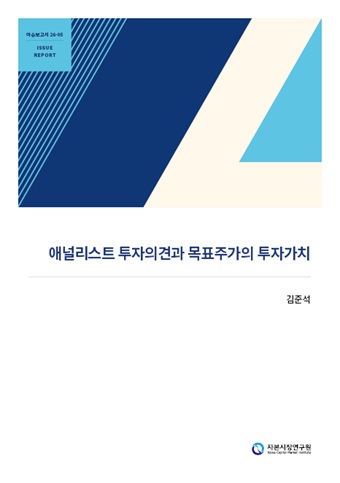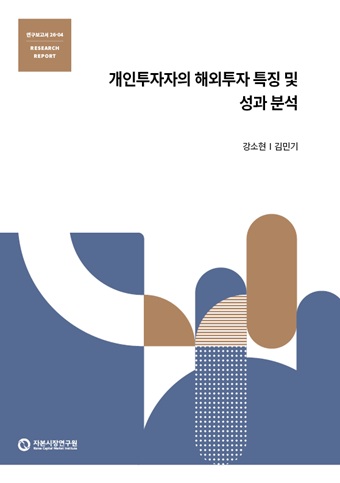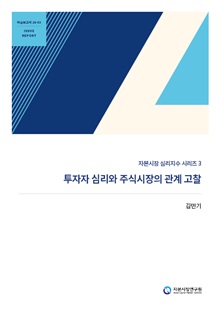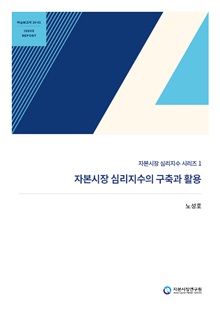Find out more about our latest publications
174 Results

This study empirically analyzes the investment value of stock recommendations and target prices issued by Korean stock analysts. Using portfolios constructed from analysts’ recommendations and target prices announced between 2000 and 2024, the ...

Since the outbreak of COVID-19, Korea’s capital market has seen a rapid expansion of its retail investor base, with a growing number of individuals actively investing in overseas assets and structurally shifting from a domestic-equity-centered ...

This study examines the characteristics and market relevance of a Capital Market Sentiment Index (CMSI) constructed by fine-tuned transformer-based large language mode...

This study provides a comprehensive discussion of the “Capital Market Sentiment Index (CMSI),” regarding its conceptual background, construction methodology, statistical properties, and potential applications. As macroeconomic uncertainty...